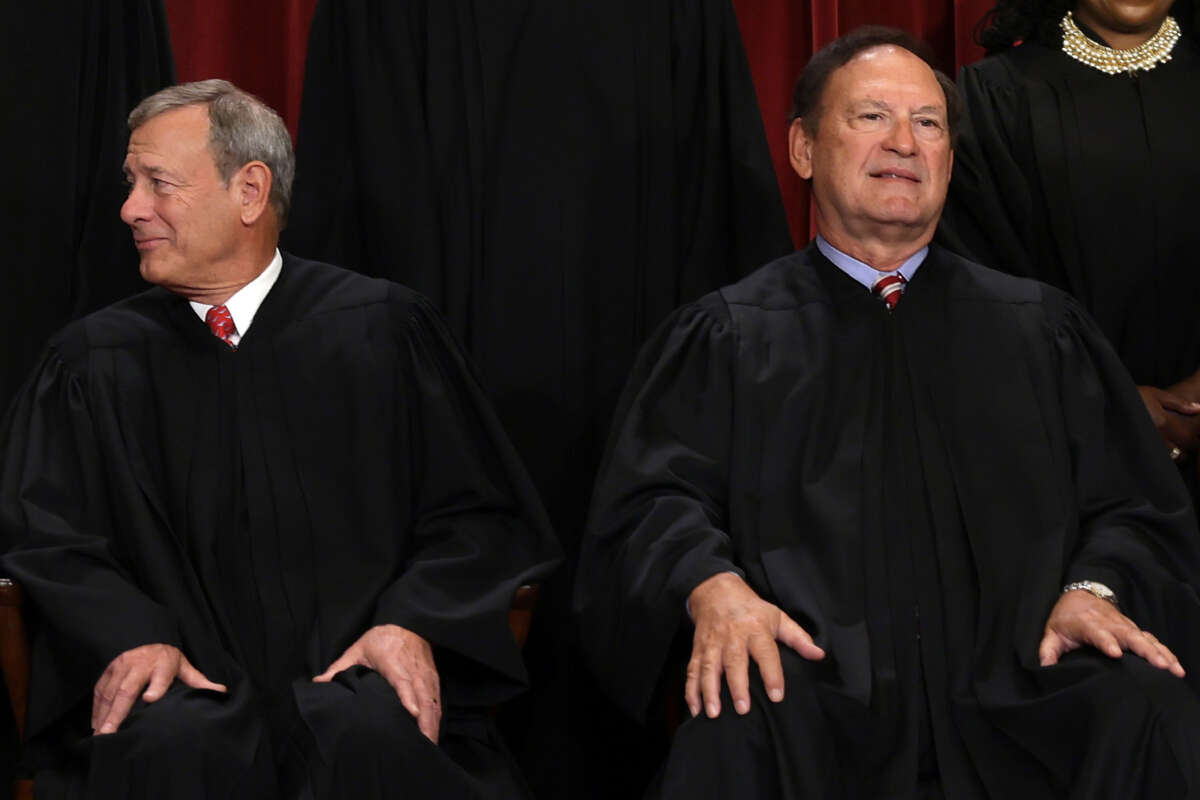Support justice-driven, accurate and transparent news — make a quick donation to Truthout today!
Conservative Supreme Court Justice Samuel Alito must be recused from future cases regarding legislation regulating the Court after his recent striking comments in an interview with The Wall Street Journal constituted a violation of the Court’s ethics code, Democrats on the Senate Judiciary Committee have said.
In a letter sent to Chief Justice John Roberts on Thursday, Judiciary Chair Dick Durbin (D-Illinois) and fellow Judiciary Democrats urged Roberts to take steps to ensure that Alito is recused from cases that could involve legal disputes over the Supreme Court ethics bill recently passed through the committee, as well as Moore v. United States.
They cited a WSJ article last week in which Alito claimed that Congress has no power to regulate the Supreme Court — a statement that contradicts the basic principle of checks and balances and the Constitution, as many Democrats pointed out. “No provision in the Constitution gives them the authority to regulate the Supreme Court — period,” Alito had said.
“By opining on the constitutionality of legislation under consideration by the U.S. Senate and agreeing to sit for interviews conducted in part by an attorney with a case currently pending before the Court, Justice Alito violated a key tenet of the Statement on Ethics Principles and Practices to which all Supreme Court Justices purport to subscribe as well as the Code of Conduct for U.S. Judges,” the Democrats wrote.
“Since 2011, you have argued that the Supreme Court can police its own ethical conduct,” they continued. “Yet, this year has been marked by revelation after revelation of justices receiving lavish gifts that they failed to disclose as required by law or otherwise using their offices and taxpayer-funded resources for personal gain.”
Unlike every other federal court in the country, the Supreme Court isn’t bound to an ethics code. But justices still agree to follow basic ethics principles as part of their confirmation process, and Democrats say that Alito has violated the ethics statement by projecting an “appearance of impropriety,” creating a situation in which the public “would doubt that the Justice could fairly discharge his or her duties.”
The Democrats added that, by issuing a pre-judgment in the form of a public statement on an issue, Alito has “unquestionably engender[ed] doubt that he could fairly discharge his duties should this question come before the Court.”
The lawmakers further pointed out that the WSJ interview was conducted in part by a lawyer with business pending before the Supreme Court. David Rivkin is representing plaintiffs in Moore v. United States, which concerns Congress’s authority to levy certain taxes, especially ones involving the wealthy and corporations. Rivkin also happens to be a lawyer for major conservative activist Leonard Leo, they wrote.
“Set aside the telling fact that Alito’s ‘interviewer’ Rivkin is also Leonard Leo’s lawyer, who is blocking our inquiries into Alito’s freebie, billionaire-funded vacation; the other wrong is that Alito should not be talking about this stuff at all — according to Alito!” Sen. Sheldon Whitehouse (D-Rhode Island) tweeted on Thursday.
Whitehouse posted a video of Alito repeatedly telling the Judiciary Committee during his confirmation that it’s improper for a justice to comment in public on matters that may come before the Court.
“He has also said ‘I can’t opine on’ such things and ‘I wouldn’t express an opinion on’ such things because I ‘have to go through the whole judicial process of decision-making.’ That was then, I guess,” Whitehouse wrote. “Now he’s inviting an appeal challenging our legislation, and telegraphing how he would rule in that case. Every other justice knows that’s wrong.”
Media that fights fascism
Truthout is funded almost entirely by readers — that’s why we can speak truth to power and cut against the mainstream narrative. But independent journalists at Truthout face mounting political repression under Trump.
We rely on your support to survive McCarthyist censorship. Please make a tax-deductible one-time or monthly donation.
